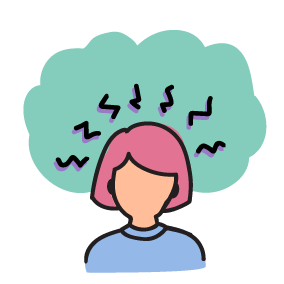
MindWell team member Gillian talks about what resilience means to her and shares ideas that she’s used to help her cope better.
What is resilience?
Resilience is how we cope with the ups and downs of life and also how we recover from set-backs. Everyone experiences stressful situations, illness, work or study pressure, family problems, financial worries and more from time to time. We also experience everyday stress like dropping our favourite mug, getting stuck in traffic, missing a train or forgetting a dentist appointment.
When I feel resilient, I can adapt to new situations, keep going with my aims and feel strong. I function well and ‘bounce back’ from problems more easily.
There are times I’ve believed I’m not resilient and felt weak or unable to cope. Knock-backs left me struggling emotionally, low in energy and anxious about future problems.
I can remember missing a train and crying at Leeds station (more than once). Nowadays, I’d be more likely to swear, take a breath, and then look for someone to help me.
But I still need to look after my wellbeing – being resilient means I’m looking after my physical and mental health and practising self-care. It doesn’t mean I find life easy and just shrug set-backs off – I still have wobbles!
So why is resilience important for mental health?
Another word for the ‘ups and downs of life’ is stress. Stress is something we all deal with every day, but a very stressful experience or lots of small stressors can add up and overwhelm us. Our mental and physical health can be affected by stress.
Being resilient means I find it easier to cope with day-to-day stress and recover more easily from bigger stressful experiences.
I know that looking after my physical health benefits my body and mind. Having a self-care routine, including getting enough sleep, eating a varied and healthy diet, drinking enough fluids and exercising, can help me feel and stay well.
I need to include activities that help me be emotionally resilient, too, such as talking to someone I trust, going to a peer support group or having a break from work or study. I find these self-care activities most difficult, but I know they really can benefit my mind.
If you’re like me and have experienced mental ill health, you might worry that problems and stress will cause you to feel anxious, depressed, panicky or lead to self-harm behaviours. I believe that building my resilience can help me cope with these problems in a healthier way and hopefully reduce the risk of becoming ill.
How can I become more resilient?
The good news about resilience is that it’s something we can learn, improve and grow. If you feel that you’re not very resilient right now, you can make small changes that nurture your body and mind. Resilience is an ongoing process – becoming and staying resilient takes time and effort.
Here are a few ideas that I have tried:
- Thinking about someone I know or admire who is resilient and the behaviours or characteristics they have. What can I learn?
- Writing a list of words or phrases I associate with resilience: strength, flexibility, perseverance, determination, self-compassion, boundaries, optimism, self-care, self-belief… How can I practise these more?
- Creating a self-care toolbox with resources, ideas and inspiration from MindWell to help me adapt to what each day brings, such as the STOP technique, relaxation breathing, remembering the stress bucket and using positive self-talk.
- Writing in a journal to help me ‘dump’ negative thoughts and feelings and see them more objectively.
- Taking courses on resilience, relaxation, anxiety, stress and being well at work.
If you want to find ideas to build your resilience, why not look for online courses with Leeds Mental Wellbeing Service, workshops with Leeds Mind or the Leeds Recovery College, or explore Leeds Libraries for some of the Books on Prescription? If it’s work that’s causing your stress, try reading our 10 strategies for coping with work stress.
And there is help available for anyone who feels that life is getting too much for them – visit our MindWell page Need urgent help? to find helplines, online and face-to-face support.
Wishing you strength on your resilience journey!
